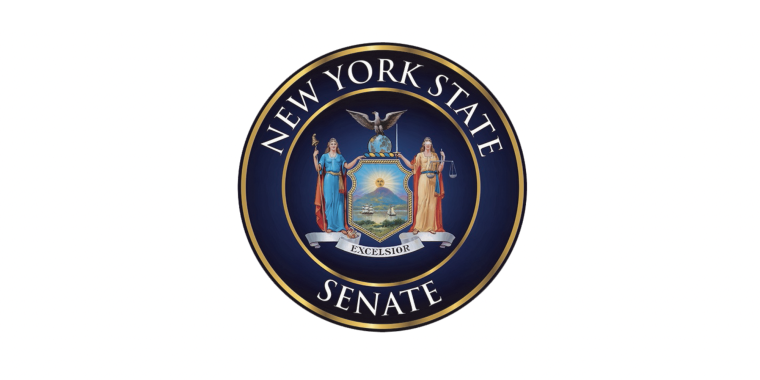
Testimony Submitted to The Assembly Standing Committee On Corporations, Authorities and Commissions Regarding the West Side Stadium Proposal on June 21st, 2004
Liz Krueger
July 12, 2010
My name is Liz Krueger and I represent the 26th Senate District, which includes the Upper East Side, East Midtown and Midtown areas of Manhattan. I am grateful to Assemblymembers Richard Brodsky, Scott Stringer, and Joseph D. Morelle for holding this hearing today. There has been an alarming lack of public discussion regarding redevelopment of the Far West Side, and considering that aspects of this project are designed to evade oversight, this hearing is timely and important.
I believe that the proposed 75,000-seat football stadium is a colossal mistake that contradicts sound planning principles and rational economic development policy. As my district extends to 8th Avenue in Midtown and as far south as 19th Street, I can say with confidence that the environmental consequences of the stadium would be extremely detrimental to the surrounding neighborhoods and to the vital economic activity that occurs in this section of New York. From a planning perspective, it makes little sense to situate the stadium at the nexus of the region’s transportation infrastructure, where traffic congestion is already a serious problem. To be sure, the Jets consider its location a major asset, and any stadium should be accessible by public transportation. However, this stadium would also be situated near a major highway and tunnel, and would consequently bring thousands of extra cars into the city center for each event. Current traffic problems would be exacerbated and would compromise the quality-of-life in the surrounding neighborhoods, while critical economic activity such as Broadway Theater would be severely disrupted (just imagine the Theater District on a gameday). The costs of these impacts have not been factored into the project’s analysis.
At the same time, the problems raised by this project go far beyond the impacts on the local communities and economy. Currently, the stadium would require more than $600 million in public subsidy that would come directly from existing tax revenue. Considering that leading economists have concluded that there is little economic benefit for cities from construction of publicly subsidized football stadiums, it is not surprising that the Independent Budget Office described new stadiums as “consumption” rather than investment. Study after study have characterized public subsidies for stadiums as a transfer of funds from taxpayers to a small number of team owners, players, and fans. The case of the West Side stadium is particularly egregious because the $1.4 billion cost is more than any stadium ever built, and the $600 million that taxpayers are being asked to contribute is unprecedented. It is counterintuitive to dedicate prime, high-cost real estate to a land-intensive stadium that will be closed most of the time, acting as a physical deterrent to economic development and the waterfront itself.
In addition, this $600 million public subsidy does not include the cost of acquiring the land where the stadium would be built, which is currently owned by the Metropolitan Transportation Authority. The true value of this land must be determined, and the MTA should not be forced to give away this valuable asset at the expense of affordable mass transit and capital projects such as the Second Avenue Subway.
Governor Pataki and Mayor Bloomberg have justified this massive taxpayer expense by designing the stadium so that it is actually part of the expansion of the Javits Convention Center across the street. While the expansion of the Javits Center is certainly an important public project, the Governor’s claim that the stadium is needed for the Javits expansion is disingenuous. The needs of the Javits Center should be our first priority in deciding how to expand it, and there are several reasons to believe that the stadium imperils the Javits plan and would eventually interfere with its operation. A report by HVS Convention, Sports & Entertainment Facilities Consulting indicates that stadiums currently used for conventions are fundamentally unsuccessful in their role as convention venues. Furthermore, as of last week’s City Council hearing, it remains unclear who will be booking events for the facility. The Jets would be inclined to book sporting events and concerts, since these events pay more for use of the facility. However, conventions benefit the City’s economy, which is why nearly every convention center across the country is run by a public entity. This is far more than a simple question of protocol.
Finally, I would like to discuss some procedural issues and the Governor’s Program Bill # 90-R. At a time when there is a clear need for public authority reform, I find it troubling that the Governor and Mayor Bloomberg would use three Governor-controlled public authorities to push this project through without public bidding, public review through the city’s land use review process, or approval by the City Council. It is far too soon to consider the Governor’s Program Bill #90-R, especially since there has been no Environmental Impact Statement, no detailed financial plan, and no opportunity for public input. Furthermore, the bill explicitly removes important provisions for public review by placing every aspect of the Javits expansion in the hands of the Convention Center Development Corporation, while eliminating the community advisory committee that the CCDC was originally required to establish and limiting ordinary judicial review of the project.
This misguided stadium proposal does not reflect the values of New Yorkers, who unequivocally prioritize education, health care, and housing over speculative mega-projects with little potential for public benefit. This ill-advised project, and the manner in which it is being aggressively pursued, could ultimately undermine our City’s Olympic bid and delay the Javits expansion. It is time for the Governor and Mayor Bloomberg to consider alternative locations for the stadium outside the center of the city, and to revisit better plans for Javits expansion that meet the needs of potential conventions by providing a more flexibile, contiguous space that does not pose costly scheduling conflicts. Once again, thank you for the opportunity to submit testimony today.
Share this Article or Press Release
Newsroom
Go to Newsroom


